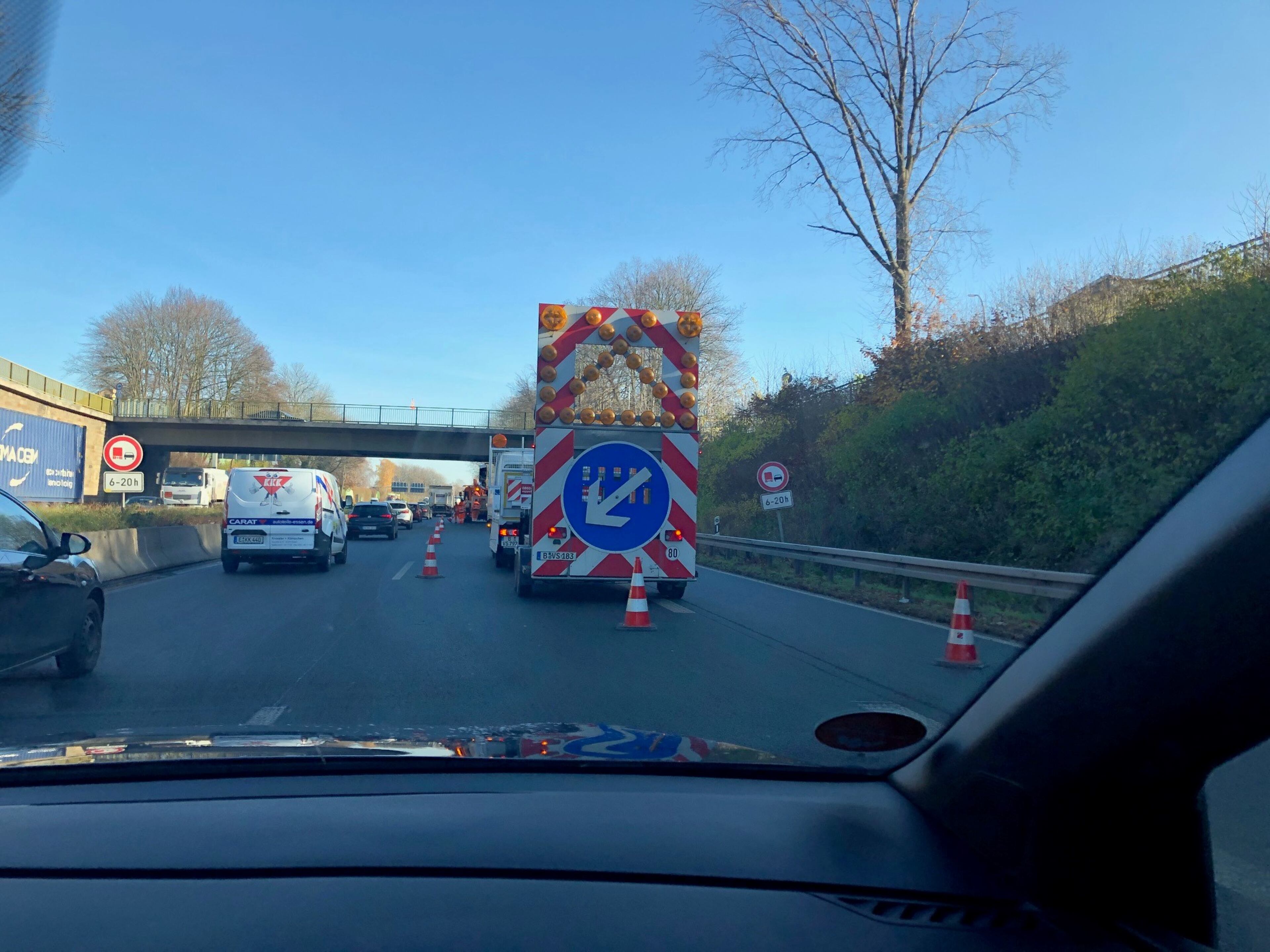Gridlock Guy: Observations from the German roads
Considering my profession, my affinity for observing how other cultures handle traffic probably isn't a surprise. My October trip to Costa Rica exposed me to San Jose's recent additions of countdown traffic lights. And now with a few days of German automobile travel under my belt, I have a few observations.
First, the autobahn is not a single superhighway of unlimited speed. The German autobahn system is the same as interstates in the U.S. — it is any limited-access highway (with exits instead of intersections) that extends to different parts of the country.
And just because one is on an autobahn does not automatically mean there is no speed limit. Speed limits usually are in place in high-volume areas or in construction zones. And the limitless speeds aren’t insane. We ran at nearly 100 mph in the fast lane and that seemed to be similar to others’ speeds.
Germany is more suited for autobahns than the States for several reasons. First, the size and population of Germany mean there are far fewer autobahns for the government to maintain, thus the pavement is very smooth. Also, Germany requires vehicles to get safety inspections every two years to stay registered. And Germany has a very high bar for driver education: it is mandatory and requires many more hours of classroom and road time to pass than in America. Germany can handle high-speed roads because of its higher standards for pavement, vehicles, and drivers.

German drivers take two preventative measures in traffic backups that American drivers do not. First, the law requires drivers who approach unexpected delays on multi-lane roads, such as autobahns, to automatically pull to the left and the right to leave an additional second left lane open for potential emergency vehicles to use. This hastens response time and causes people to slow down earlier, which then lessens the chances of a wreck in the backup.
If traffic slows very dramatically or suddenly, drivers happening upon that backup also hit their hazard lights in addition to their brakes. The flashing lights act as an exclamation point of sorts and alert trailing drivers that the slowdown isn’t just a tap of the brakes, but is a full stop. I watched my girlfriend, Momo, do this as she drove us. And after we had stopped for a moment, she quickly turned off the hazards.
Germans have a better time on the roads than Atlantans, because the population is less dense, meaning fewer cars are on the roads. Traffic is also lighter because cities are more multimodal and gas is several times more expensive. Even with these characteristics, traffic in busy Cologne was bad and people we talked to didn’t want to drive there. But there were other options, including simply walking.
Overall, automobile travel in Germany has been pleasant. (I’m writing this column in the backseat of Momo’s mom’s Volkswagen, by the way). This is an automobile culture like ours, but Germans seem to hold driving in a higher regard. The standards for the roads and cars and the caution drivers take are lessons we could apply in some shades in America. Driving is a privilege, not a right, and that is easy to forget.
Doug Turnbull, the PM drive Skycopter anchor for Triple Team Traffic on 95.5 WSB, is the Gridlock Guy. He also writes a traffic blog and hosts a podcast with Smilin' Mark McKay on wsbradio.com. Contact him at Doug.Turnbull@cmg.com.

